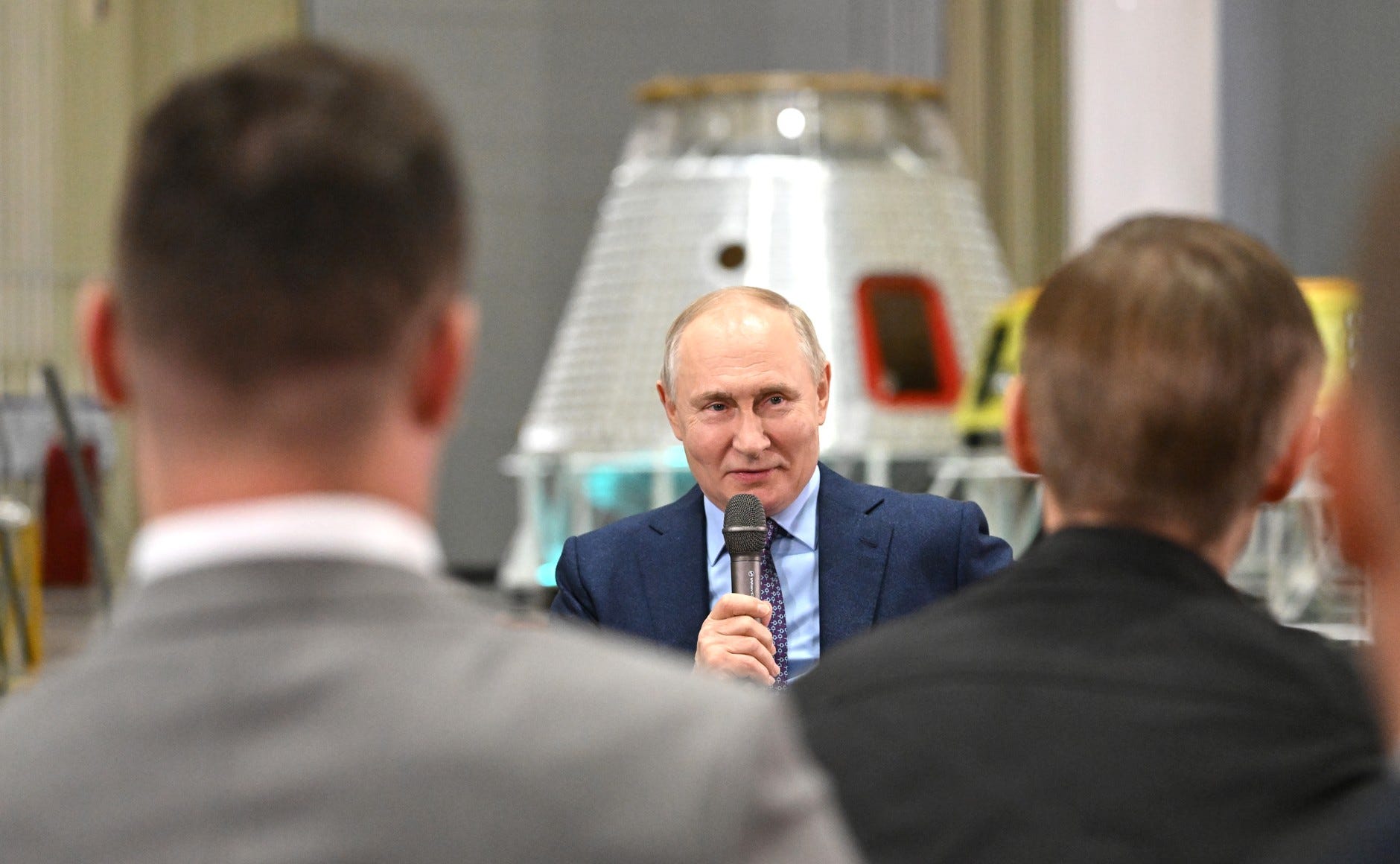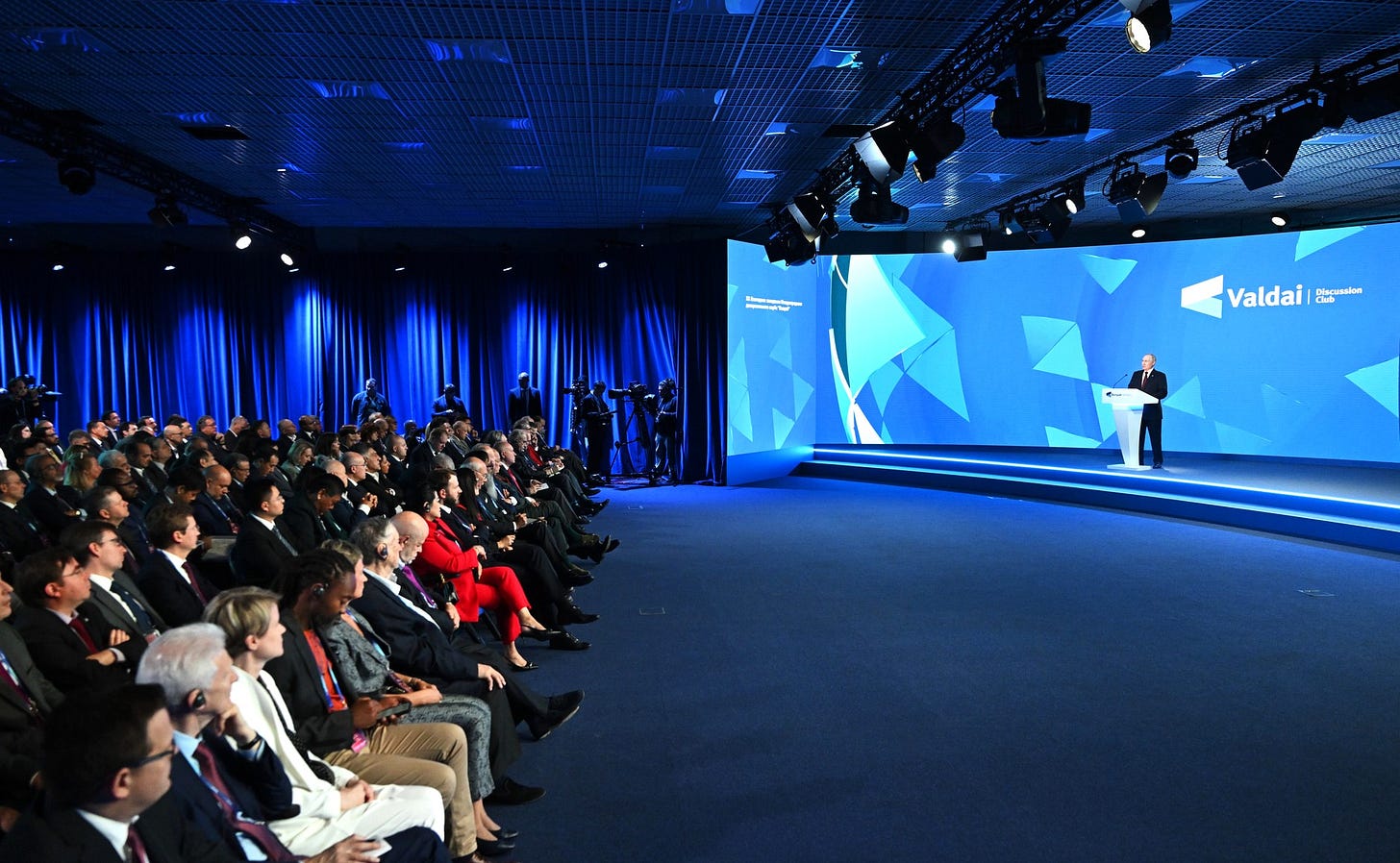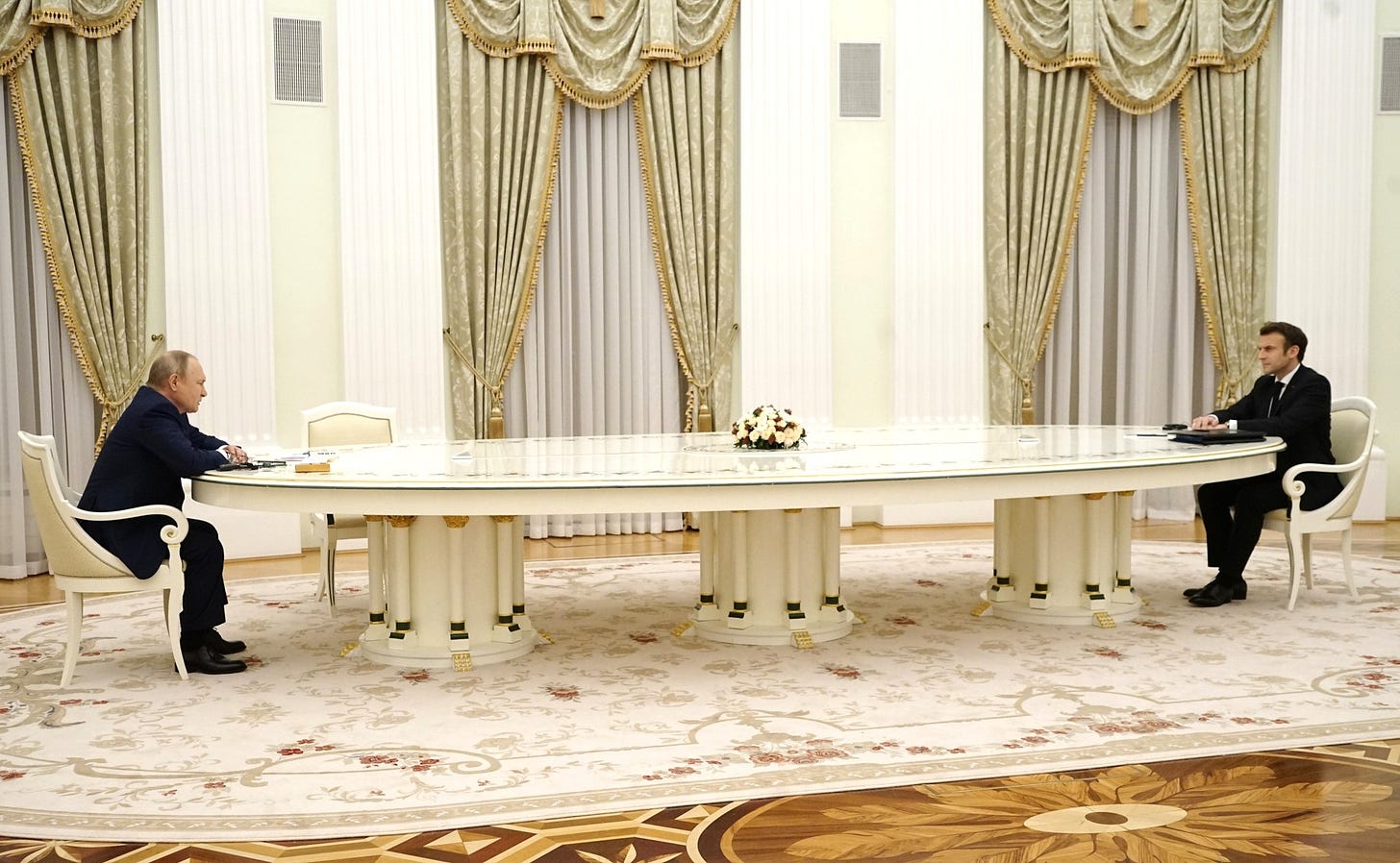Kremlin Eases Quarantine for Access to Putin as Presidential Elections Approach
Personal meetings with Putin now hold greater significance for members of the elite than ever amid the war in Ukraine.

Dear subscribers, our small editorial team works only in our readers’ interests. Since the beginning of the war in Ukraine we have very limited options to get money for our work. You can help us keep doing independent journalism with support via PayPal or Patreon.
The Kremlin has reduced quarantine requirements to meet President Vladimir Putin to five days as the 2024 presidential election, in which he is widely expected to run for a fifth term, draws nearer.
At the same time, personal meetings with Putin now hold greater significance for members of the elite than ever amid the war in Ukraine.
Putin is the only world leader to subject everyone he interacts with in person to quarantine in an effort to protect himself from Covid-19. Since spring 2020, he has only met with people who have undergone a two-week isolation under the supervision of FSO (Federal Protection Service) personnel.
Even these measures did not guarantee access to Putin. Tests had to be conducted both during and after quarantine. If any of these tests came back positive or raised questions for doctors, access to Putin was denied. For example, at the end of 2020, Kremlin pool journalist Andrei Kolesnikov was not allowed into the hall where Putin held a press conference and had to ask his question via video link.
Thanks to vaccines and herd immunity, the World Health Organization no longer considers Covid-19 to be a public health emergency of international concern. Putin himself has received at least four doses of the Covid-19 vaccine, according to official information.
Nevertheless, restrictions on access to the president stayed in place, as Putin's spokesman Dmitry Peskov acknowledged this summer. By that time, the quarantine for meeting Putin had been reduced to one week.
However, the rules for access to Putin have changed yet again, according to our sources.
In recent weeks, the Kremlin has reduced the quarantine term to five days, according to two people who recently participated in meetings with the president. One of them clarified that quarantine with testing is required if a one-on-one meeting with Putin is planned or if the person expects to have close contact with him (such as sitting next to him for an extended period or shaking hands).
"If a person does not approach Putin closer than 3-5 meters, they can skip the quarantine and just get tested," one source explained.
Based on photos and videos of Putin’s public meetings, it’s clear that the Kremlin still screens participants based on whether or not they underwent quarantine.
For example, all meetings between Putin and the government (at least those made public) take place via video conference because isolating all government members for several days at the same time would paralyze its work. According to the Kremlin's website, Putin has not met the entire government in person since March 2020.
Another example is Putin’s public appearances at events such as forums, where his security deliberately increases the distance between the first row of chairs in the audience and the stage where Putin speaks to keep him from getting sick. This was the case at the recent Valdai Forum and the Russia – A Sporting State forum.
High-ranking officials, heads of state-owned companies, and others who attend private meetings with Putin have been allowed to complete the quarantine in their own homes in the past year (ordinary participants are still isolated in hotels and sanatoriums), but remain under the FSO's supervision. They must also submit to tests for Covid, influenza, and acute respiratory viral infections.
In the conditions of war, the opportunity to personally meet with Putin is of great significance for these individuals. An audience with Putin means that he still trusts that person and provides them his patronage.
For example, an assistant to the head of one state-owned company, when asked about whether his boss faced dismissal as anonymous Telegram channels had reported, said: “His detractors can want anything and spread as much gossip as they like on Telegram. The chief [Putin] recently met with him [the head of the state-owned company], they spoke for two hours, and all the issues were resolved. If there were any problems, Putin wouldn't have seen him at all.”
In February 2022, French President Emmanuel Macron visited Russia in the final, ultimately futile, attempt by a Western leader to prevent Putin from sending troops into Ukraine. Despite Putin calling his six-hour conversation with Macron substantive and useful, he ordered the start of the “special military operation” two and a half weeks later.
The Putin-Macron meeting was memorable not just because of the high stakes but also due to the setting in which it took place: the presidents spoke to one another from opposite ends of an incredibly long table in the Kremlin. The table, whose length was revealed to be six meters, quickly became a meme.
Reuters reported that Putin refrained from close contact with Macron due to the French president's refusal to submit to a coronavirus test administered by Russian doctors.
Macron, who was tested by French physicians before arriving in Moscow, declined to be tested in Russia because the transfer of his genetic material to another state is prohibited for security reasons (Putin is equally sensitive regarding the protection of his biological information). Peskov confirmed Reuters’ report.
The relaxation of the Kremlin's quarantine measures may be linked to Putin's presidential campaign, our sources said.
"Now everything has become more flexible, and it's decided on a case-by-case basis," said one of the individuals who recently met with Putin.
Putin is set to run in Russia's presidential elections in March 2024, in what will mark the fifth term for the 71-year-old president. In the past month and a half alone, Putin has had several meetings with young people, traveled outside the Commonwealth of Independent States (CIS) for the first time since his arrest warrant from the International Criminal Court, visited China, and met with a dozen foreign leaders.
While Russia’s elections are merely a routine, they are one that the Kremlin sees as necessary — and so Putin is working on his campaign and more actively meeting people, according to another high-ranking source close to the Kremlin.
"He's on top, in good spirits, and the [Ukrainian] counteroffensive didn't work,” the source said. “The West may not recognize the elections, but this doesn't concern him. We have the most honest elections on Earth. Observers from Kyrgyzstan, Uzbekistan, China — they will all recognize them. There's plenty of money in the country, businesses are looking for places to invest. Everything is fine for [Putin], there are no threats.”






Very interesting piece, Farida. Thank you indeed and best wishes from Kiev.